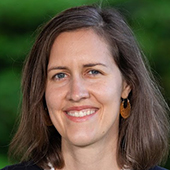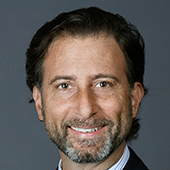Education and Human Development
How does school spending impact students’ long-term outcomes? Which education interventions are most effective in terms of cost and achievement? How can caregivers best support children’s social-emotional growth? The wellbeing of families and children is shaped not just by what happens at home and work, in classrooms, and on playgrounds, but also by broader forces, such as federal and state policies and programs. In this area, IPR faculty study how social, economic, and governmental factors interact to affect family dynamics, with a particular focus on the development of children and young adults.
A Message From Jonathan Guryan, Program Chair

Every day around the nation, teachers, school leaders, social workers, and families face major challenges dealing with limited funding, varied learning needs, mental health crises, and developmental issues, among others. Such complex challenges require rigorous research across academic disciplines and different life stages. IPR’s Education and Human Development faculty take an integrative approach to their research, reaching across disciplines, to fully understand what children and families need to thrive.
Working Papers
Recently published articles and working papers in this program area include:
Kirabo Jackson, Julia Turner, and Jacob Bastian. 2025. Universal Pre-K as Economic Stimulus: Evidence from Nine States and Large Cities in the U.S. (WP-25-25).
Yabo Gwladys Vidogbena, Risto Conte Keivabu, Julia Behrman, and Liliana Andriano. 2025. Temperature and Schooling: How Heat Shapes Primary Learning in West and Central Africa (WP-25-21).
Burton Weisbrod and Glen Weisbrod. 2025. Evolving Roles of Higher Education in the U.S. Economy: Historical Context for Viewing Changes in Federal Policy and College Performance Goals (WP-25-20).
Faculty Experts
Faculty consider issues associated with education from different vantage points that include economics, sociology, psychology, biomedical sciences, and quantitative research methods.Events
There are no upcoming events at this time.




